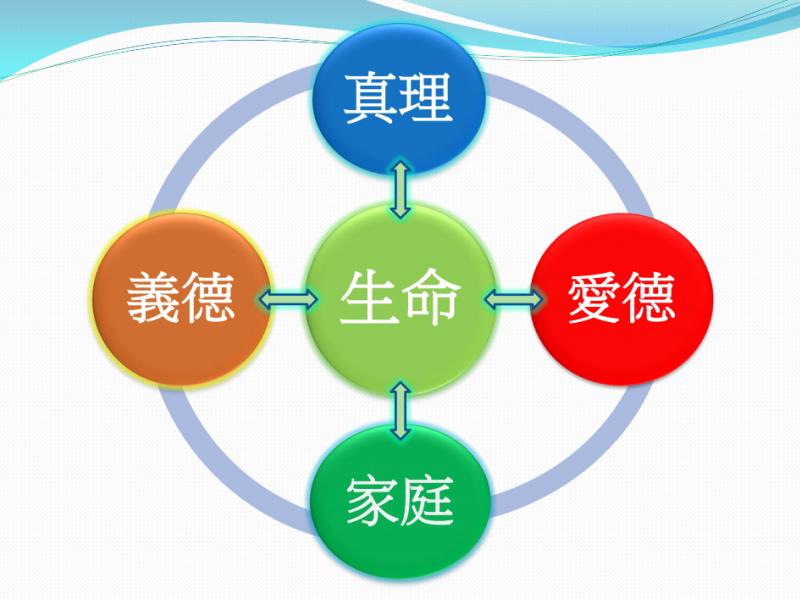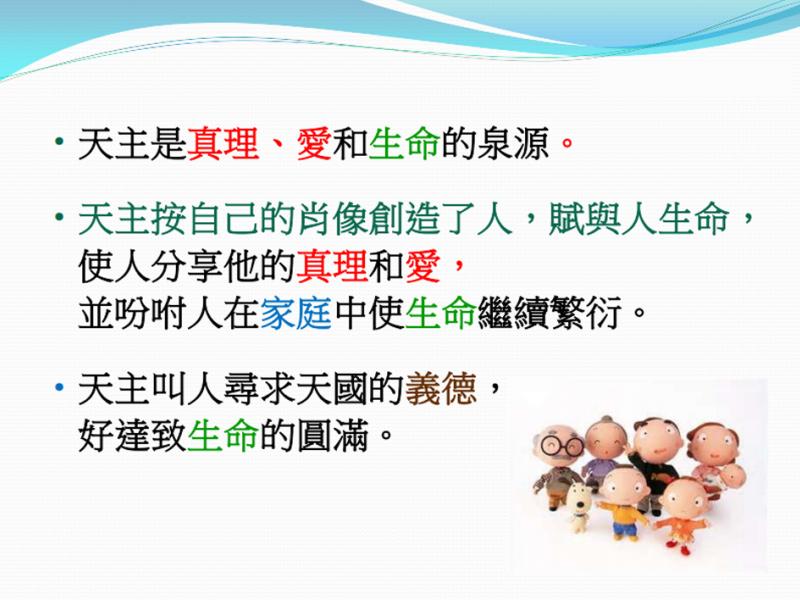Core Values of Catholic Education
Vision
With a determination to carry on the contribution of the Catholic Church to education, a Catholic School, as its vision and mission, shall uphold and pass on the following core values to young people to prepare them properly for their life and future responsibilities.
Truth: It is what the human intellect is searching for.
- Human reason's capacity for truth must be upheld, and the desire for truth, especially the truth about God and about the meaning of life, must always be encouraged and kept alive.
- Wisdom, which enables a person to distinguish right from wrong, and good from evil, must be treasured above all other kinds of knowledge.
- Honesty demands that a person tell the truth and put it into practice, even at the cost of making a great sacrifice.
Justice: It is the moral virtue that consists of a constant and resolute will to give to God and one's neighbours their due.
- Justice towards God is called the "virtue of religion"; and justice towards one's neighbours disposes one to respect the rights of others and to establish in human relationships the harmony that promotes equity with regard to individual persons and to the common good.
- Human dignity can be protected and promoted, and the wellbeing of society can be achieved, only if human rights are respected and individuals undertake their responsibilities for one another, for their own families, and for society.
Love: It is the greatest of all virtues.
- God, the source of life and goodness, has created everything out of love, and has called the whole human family to be His children. As a member of God's family, one's goals in life are to share God's happiness, to love God above all things and love one's neighbours as brothers and sisters.
- Jesus Christ, the Son of God, the Saviour of humankind, is the model of selfless love and humble service to others.
- The practice of all the virtues is to be inspired and motivated by love, so that all aspects of human life and interpersonal relationship may be bound together in perfect harmony.
- Love surpasses the strict measure of justice and urges one to care for the poor and the needy, and to make a preferential option for the underprivileged and marginalized in society.
Life: It is a priceless gift from God and is sacred in itself.
- Every human person is created in the image of God and has the right to life, which must be respected from its conception to its natural end.
- In the spirit of the "Beatitudes" as taught in the Gospel, the tribulations and adversities in life are to be faced with serenity and hope.
- Every person is entitled to have whatever is necessary for a decent and dignified existence.
- Only a society which respects human life can bring happiness to all.
Family: It is the basic unit of society.
- Only pure love, the unreserved mutual self-giving between husband and wife, is truly gratifying; a happy, wholesome marriage is prepared by the practice of the virtue of chastity and sustained by fidelity and an indissoluble, lifelong commitment.
- Inasmuch as sex is an integral part of conjugal life and has its own dignity, a balanced sex education must follow a holistic and in-depth approach, with emphasis on the virtues of self-discipline and mutual respect between a man and a woman.
- Marriage is the foundation of a family; an intact and united family is a permanent support for husband and wife, and for parents and children, in achieving their goals in life; an intact and united family is likewise a most favourable setting for the upbringing of children and young people, and a necessary condition for the wellbeing of human society.
Mission
A Catholic School shall cultivate the above core values by:
- upholding the time-honoured practice of respecting and collaborating with stakeholders with diverse backgrounds in achieving the School's vision and mission, in the awareness that the success of education depends on the joint effort of all parties concerned.
- providing a family environment imbued with mutual trust and love in the School.
- incorporating in the formal school curriculum Religious Education courses designed by the SSB, and fostering a Catholic spirit through religious practices held regularly in the School, such as morning prayers and religious activities held regularly for staff and pupils.



